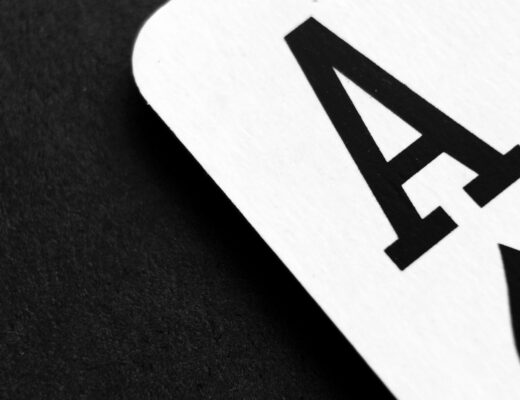We need a lot of money to live life happily. Money is the solution to all problems. Whether true or not, this is what many of us heard while we grew up. But, no one mentioned how much. And for most, the more, the better.
There is about Rs 25 lakh crores of printed currency under circulation in India as per the Reserve Bank of India report. All you want is a fair share of this.
The primary objective of money is to help you lead a joyful life. The purpose of money does not change, even post-retirement, i.e. after actively disengaging from work.
So how much money is required to retire? How much money do you need to retire in India?
One crore? Ten crores? Hundreds of crores?
The answer is, it depends. There is no straight answer, and one size does not fit all.
The amount of money is dependent on several parameters. Factors like lifestyle, financial lineage, family size, city of residence, health conditions, assets & liabilities, aspirations, etc., impact the sum required.
Know your post-retirement life objectives
Your circumstances will help you decide what you want from post-retirement life. One end of the spectrum is that you wish to have everything under the sun. If you are blindly making a plan to achieve this unrealistic goal, you will be left disappointed in the end.
The point here is to take a hard look at aspirations. Match them with the financial realities. And, finally, use that information to figure out a Target Corpus.
To help you determine the target, here are the first set of questions to ask yourself: Why do you need money when you retire?
- Eat good food, experiment with cuisines and be able to meet living expenses
- Dress well each day and for every occasion of your life
- Keep assets debt-free, and have a place that you can call it home
- Support the family members and near-and-dear ones in times of their financial distress
- Be able to meet medical expenditures
- Follow your dreams to contribute to philanthropy, travel, pursue your hobbies, etc
- Enjoy festivals, family events, weddings, and spend time with family
- Leave a legacy
- Feel safe
If this is all you want to do with the money when you retire, you are in a good position. You already know the purpose. And determining the target amount is possible.
Always remember these words of The Dalai Lama about money and life.
Must have’s before you start planning for retirement
Retirement planning is a critical exercise, and designing a well-rounded plan is a non-compromising objective. Here are some of the essential factors to consider before you start planning for your retirement.
- Create an emergency corpus equivalent to 12-18 months of household expenses
- Buy a life insurance policy
- Have adequate health insurance coverage. Do consider the medical advancements, and therefore increase in the cost of medical treatments
- Plan to reduce the debt to NIL by the time you retire
- Own a house where you would like to spend the rest of your life
- Know your living expenses. Here are some of the essential factors to consider:
- Medical expenses may increase
- Travel and social expenses may also increase
- Discretionary expenses will remain, though their nature will change (entertainment costs may go down, you may not need fancy office wear, but outflows for charity or cost to pursue hobbies will increase)
- Expect the fixed monthly installments (home, car, education) to reduce
- Daily office transportation costs, office-related expenses will not continue to exist
- Annual outflows forming a considerable portion of your expenses may continue. Examples are – yearly insurance premiums for life insurance, Mediclaim policy, car insurance, property tax, etc.
Resolve for outstanding family needs
Suppose you wish to retire early and kids have not yet completed the college education. In such a scenario, form a separate fund to serve the purpose. Alternatively, there may be a need to accumulate funds to support needs like an expense for marriage, make a down payment for a house, settle for a significant property maintenance invoice, etc.
Create a depreciating asset fund
You own several depreciating assets like a car, laptop, home equipment, mobile phone, tablets etc. It is best to plan outflows to manage the replacement of these assets.
Make a medical fund
All the medical expenses are not insured. With the rising cost of treatments, it is fair to create a pool of money that compounds itself until utilized. This corpus will help you meet almost mandatory but non-reimbursable medical expenses like a lens for cataracts, dental procedures, etc.
Read about “Mediclaim Policy – all you need to know“ here to get a perspective.
Inflows should always be net of taxes
All reference to income is income after deduction or payment of the applicable taxes as per the regulations. Taxes are applicable on income from investments, interest income, and on sale transaction.
What should be the Target Corpus when you retire?
To arrive at the corpus amount, an assessment of the time horizon is critical. Since no one can forecast the remaining time horizon with confidence, we will use certain assumptions.
First, we assume a life expectancy of approximately 80 years.
Second, we expect a 5-6% increase in the cost of living per year, including the cost of insurance premiums.
Third, the corpus must remain intact.
Fourth, our analysis assumes a 6-7% per annual (pre-tax) return on investment.
Lastly, your retirement age also has a bearing on the corpus you require to sustain life after retirement.
Retirement Target Corpus = approximately 500-1,000 times the monthly household expense.
The Target calculations will significantly differ if the expectation is to eliminate the corpus gradually. However, we have not considered that hypothesis in our analysis.
To conclude, how much money do you need to retire
The Target corpus can be and will be very different for each one of us. Individual circumstances determine the amount, and therefore it is an art to establish the suitable target corpus. However, with a close look at your own life, it is possible to find the ballpark number.
Your expenses and desires can be infinite. If you chase those unsatisfiable desires, you will miserably fail. So, it is essential to put a cap on your financial ambitions during this exercise.
Further, since determining the Target is a hypothetical process, it is vital not to judge the number. Target is always theoretical, based on certain factors. Your inner wisdom will tell you if the Target is enough or not and answer how much money you require to retire. Also Read about: Top 10 benefits of mutual funds
Happy retirement planning!
The author is a senior finance professional with over fifteen years of work experience in corporate finance and has an affinity for Investment and financial planning. Please leave your comment or share thoughts on this article via email at decodefinance.in@gmail.com. For more articles, please visit the website www.decodefinance.in.
Disclaimer:
The author has used his knowledge, experience, and understanding of the subject to write this article. Any views, opinions, and thoughts mentioned in the article belong solely to the author and not necessarily to the author’s employer (past or current), organization, committee, or other group or individual.
Under any circumstances, the author shall not be liable for any views or analysis expressed in this note. Further, the opinions expressed are not binding on any authority or Court. We advise readers to consult their financial advisor for assistance in their specific case.





Too good